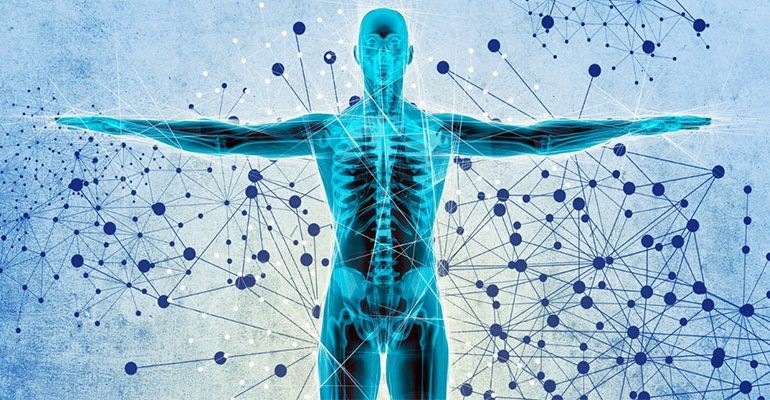
Insight by: Jon Warner
The life sciences sector stands on the brink of what can only be described as a revolution, fueled by the promise of precision medicine. This approach, which seeks to tailor healthcare to the individual based on their unique genetic makeup, lifestyle, and environment, has the potential to radically transform how we diagnose, treat, and even prevent diseases. Over the next 10-15 years, precision medicine is predicted to touch every corner of the life sciences, from drug discovery and development to diagnostics and healthcare delivery in all aspects, and in this brief article we will look at how.
The Rise of Personalized Therapies
One of the most significant impacts of precision medicine or what is also often called ‘personalized health’ will be the development of personalized therapies. Instead of relying on one-size-fits-all treatments, medications (when they are needed) will be tailored to an individual’s specific genetic and molecular profile. This targeted approach promises to increase efficacy, reduce side effects, and usher in a new era of personalized healthcare.
This shift will be driven by advancements in several key areas:
Genomics and Proteomics: Advances in gene sequencing and protein analysis will allow for a deeper understanding of an individual’s disease risk, progression, and response to treatment.
Big Data Analytics: The ability to analyze vast datasets of genomic, clinical, and environmental information (and especially social determinants or health) will be crucial for identifying patterns and developing predictive models for personalized interventions.
Artificial Intelligence (AI) and Machine Learning: AI and machine learning algorithms (driven by super and ultimately quantum computing) will play an increasingly critical role in analyzing complex data, identifying potential drug targets, and predicting individual patient responses to therapies.
Transforming Drug Discovery and Development
The traditional drug development model, often criticized for its lengthy timelines and high failure rates, will be transformed by precision medicine. By targeting specific patient populations (especially in rare disease areas) with known genetic or molecular drivers of disease, clinical trials will become smaller, faster, and more efficient. This will lead to:
Faster Drug Approvals: Targeted therapies with strong efficacy data in well-defined patient groups will likely see faster regulatory approvals.
Reduced Development Costs: Smaller, more focused clinical trials will translate into significant cost savings for pharmaceutical as well as bio-technology and device companies.
Increased R&D Productivity: The ability to identify promising drug candidates early on and focus on therapies with a higher likelihood of success will boost overall R&D productivity.
Diagnostics: Moving from Reactive to Predictive
Precision medicine will start to dramatically shift the paradigm of diagnostics from reactive to ‘proactive’ or predictive and preventive.
Early Disease Detection: Genetic testing and biomarker analysis will enable the identification of individuals at high risk for developing certain diseases, allowing for early interventions and lifestyle modifications.
Precision Diagnostics: Diagnostic tools will become increasingly sophisticated, enabling the identification of disease subtypes and guiding treatment decisions based on an individual’s molecular profile.
Real-Time Monitoring: Wearable sensors and other monitoring devices will provide continuous data on an individual’s health status, enabling early detection of changes and much more timely interventions.
Reshaping Healthcare Delivery
The integration of precision medicine into healthcare systems will require a fundamental shift in how healthcare is delivered in a variety of ways.
Data-Driven Decision Making: Healthcare providers will increasingly rely on data analytics and AI-powered tools to make informed decisions about diagnosis, treatment, and disease prevention.
Citizen/Patient Empowerment: Citizens looking to stay healthy and Patients will become active participants in their healthcare journey, armed with knowledge about their genetic predispositions and empowered to make informed decisions about their health.
Value-Based Care: Aided by precision medicine data, the focus will shift from treating diseases to promoting health and well-being, with payment models incentivizing preventive care and improved outcomes.
Challenges and Opportunities
While the potential of precision medicine is clearly vast, realizing its full promise will require overcoming several challenges:
Data Privacy and Security: Ensuring the privacy and security of sensitive patient data will be paramount and will require much stakeholder collaboration and good will.
Data Sharing and Interoperability: Seamless data exchange between different healthcare providers and other institutions will be crucial for effective precision medicine initiatives.
Health Equity: Access to precision medicine technologies and treatments must be equitable, ensuring that everyone has fair access and benefits from these advancements.
Conclusion
The next few decades will undoubtedly see a profound transformation in the life sciences sector, driven by the advancements in precision medicine. This personalized approach to healthcare promises to improve patient outcomes, accelerate drug, bio-technological and device development, and create a more sustainable and efficient healthcare system. While challenges remain, the potential benefits of precision medicine are too significant to ignore or not push as hard as possible. The life sciences sector is poised for an era of unprecedented innovation and progress, with the potential to improve the lives of millions worldwide.




